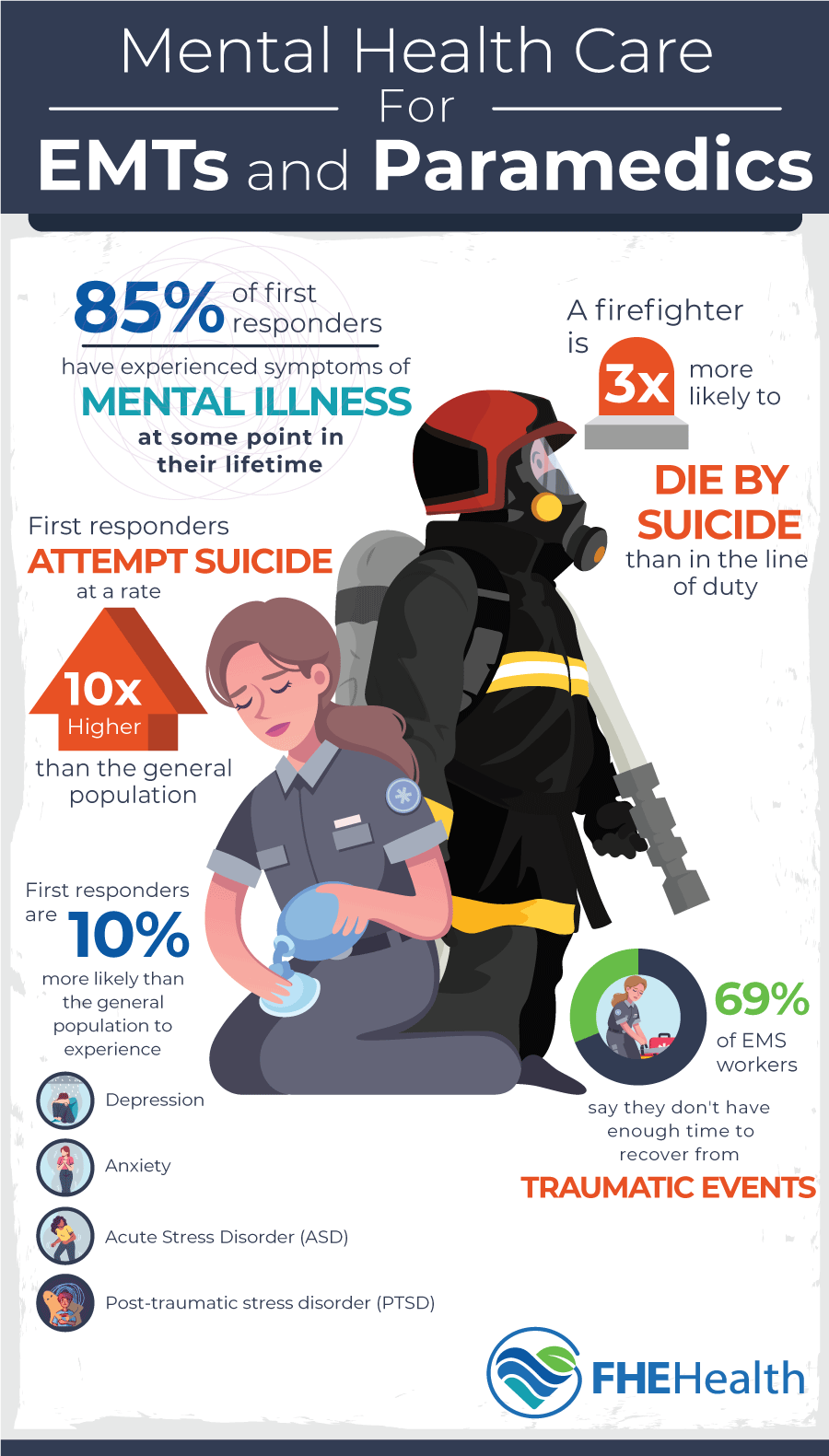
In his 1983 book entitled Mister Rogers Talks with Parents, Fred Rogers recounted how, when he was a child and would see scary things on the news, his mother would tell him, “Look for the helpers. You will always find people who are helping.” In many cases, those “helpers” are the EMTs and paramedics who are first to arrive at a scene after a trauma has occurred. While this line of work is profoundly rewarding and provides invaluable services to communities, it also comes with high exposure to danger and trauma, leading to possible mental health issues for EMTs and paramedics.
The challenges that first responders face are unavoidable and can have a significant impact on EMS mental health. Recognizing what steps they can take and where to find help can enable those serving on the frontlines to safeguard their mental health and continue to be effective in their jobs.
What are the Unique Mental Health Challenges Faced by EMS and Paramedics?
EMTs and paramedics face many job-related stressors unique to their professions. One study that assesses EMS mental health statistics shows that first responders report significantly higher rates of depression, post-traumatic stress disorder, anxiety, sleep disorders, fatigue, and suicide.
These stressors stem from routine exposure to suffering and death, the unpredictable nature of the job, and being in situations that jeopardize their own health and safety. The work is mentally taxing, requiring a high degree of focus and composure in high-stress situations. On top of this, the shift-work pattern can disrupt their bodies’ circadian rhythm and cause sleep difficulties, further exacerbating mental health issues. Paramedics may also experience guilt and self-doubt when a situation has a disappointing outcome.
Unfortunately, even though this line of work is inherently disruptive to EMS’ mental health, paramedics and EMTs receive very little training on how to protect and care for their mental wellbeing. Many workers have difficulty recognizing the signs of mental illness or knowing where to turn when they need help. In some cases, the stigma surrounding mental illness in some workplaces could discourage discussions about paramedics’ mental health.







